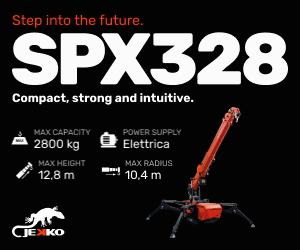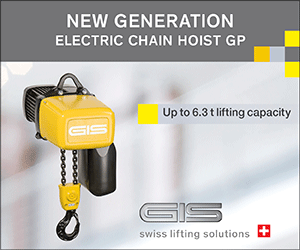FuelCell Energy Calls for Support Legislation for Fuel Cell and Hydrogen Power Generation
FuelCell Energy Inc. has urged support for The Fuel Cell and Hydrogen Infrastructure for America Act, which is being introduced by U.S. Congressman John B. Larson and U.S. Senator Richard Blumenthal. The legislation is designed to accelerate the adoption of stationary fuel cell power generation and the hydrogen energy infrastructure while supporting domestic manufacturing and helping the U.S. fuel cell industry to grow. Congressman Larson and Senator Blumenthal were accompanied by U.S. Congressman Chris Murphy during a visit to the Torrington, Conn., production facility of FuelCell Energy, Inc., where they announced their intention to introduce this legislation.
"The kind of work being done here at Fuel Cell Energy to provide highly efficient on-site power generation is exactly the kind of work we should be seeing more of to help move us to a stronger future," said Congressman Larson. "I look forward to continuing my work with the delegation to improve federal incentives for this sustainable, American technology. It's good for our economy here in Connecticut and for the energy security of the Nation."
"Fuel cell technology and energy can create jobs and enhance our state economy as well as free America from dependence on foreign oil – a huge win-win for everyone," Senator Blumenthal said. "I am proud to introduce this bill modeled on Congressman Larson's measure, which promises major benefits to Connecticut companies, helping to make our state the fuel cell capital of the world."
The Fuel Cell and Hydrogen Infrastructure for America Act (the Act) creates a tiered investment tax credit (ITC) to reward highly efficient stationary fuel cell power plants utilizing a combined heat and power (CHP) configuration. The ITC currently provides a tax credit of 30 percent for stationary fuel cell power plants with at least 30 percent efficiency. The Act increases the tax credit to 40 percent for fuel cell power plants achieving at least 60 percent efficiency and increases the tax credit to 50 percent for fuel cell power plants achieving at least 70 percent efficiency.
Generating both clean electricity and usable heat from the same unit of fuel enhances efficiency and reduces emissions. Direct FuelCell (DFC) power plants designed and manufactured by FuelCell Energy, Inc. can achieve efficiency up to 90 percent in CHP applications.
"We value the support of far-sighted legislators such as Congressman Larson and Senator Blumenthal to help attract private capital to fund stationary power plant installations and drive sustainable manufacturing sector job growth," said Chip Bottone, president and CEO, FuelCell Energy, Inc. "Our power plants help to address the power generation changes facing the nation as our plants provide continuous power at the point of use in a highly efficient process that emits virtually no pollutants."
In addition to supporting the installation of highly efficient and environmentally friendly stationary fuel cell power plants, the Act increases the tax credit for hydrogen refueling properties from 30 percent to 50 percent and expands eligibility to include hydrogen refueling properties for fuel cell powered material handling equipment.
Fuel cells electrochemically convert a fuel source into electricity and heat in a highly efficient process that emits virtually no pollutants due to the absence of combustion. DFC power plants are fuel flexible, capable of operating on natural gas or renewable biogas. DFC plants provide continuous baseload power and can be sited where the power is used, including both on-site applications and electric grid support. The combination of near-zero pollutants, modest land-use needs, and quiet operating nature of DFC plants facilitates their siting in urban locations.











